PENGUIN  CLASSICS
CLASSICS
THE PENGUIN BOOK OF HELL
SCOTT G. BRUCE is a professor of history at Fordham University. He is the editor of The Penguin Book of the Undead and the author of three books about the abbey of Cluny: Silence and Sign Language in Medieval Monasticism: The Cluniac Tradition, c. 9001200 (2007); Cluny and the Muslims of La Garde-Freinet: Hagiography and the Problem of Islam in Medieval Europe (2015); and, with Christopher A. Jones, The Relatio metrica de duobus ducibus: A Twelfth-Century Cluniac Poem on Prayer for the Dead (2016). A coeditor of The Medieval Review and an active member of the Medieval Academy of America, he has lectured in Israel and throughout the United States, Canada, and Europe and has held visiting research appointments at Technische Universitt Dresden, in Germany; the Universiteit Gent, in Belgium; and Emmanuel College, University of Cambridge, in the United Kingdom. He worked his way through college as a grave digger.
PENGUIN BOOKS
An imprint of Penguin Random House LLC
375 Hudson Street
New York, New York 10014
penguinrandomhouse.com
Translation, introduction, notes, and selection copyright 2018 by Scott G. Bruce
Penguin supports copyright. Copyright fuels creativity, encourages diverse voices, promotes free speech, and creates a vibrant culture. Thank you for buying an authorized edition of this book and for complying with copyright laws by not reproducing, scanning, or distributing any part of it in any form without permission. You are supporting writers and allowing Penguin to continue to publish books for every reader.
Translations and renderings into modern English by Scott G. Bruce, unless otherwise indicated.
Grateful acknowledgment is made for permission to use the following copyrighted works:
Tartarus, Prison of the Titans from Theogony and Works and Days by Hesiod, translated by Dorothea Wender (Penguin Classics, 1973). (In a volume with Elegies by Theognis). Copyright Dorothy Wender, 1973. Reproduced by permission of Penguin Books Ltd.
Odysseus at Deaths Door from The Odyssey by Homer, translated by Robert Fagels. Translation copyright 1996 by Robert Fagles. Used by permission of Viking, an imprint of Penguin Publishing Group, a division of Penguin Random House LLC.
Socrates Ponders the Punishment of Souls from The Last Days of Socrates: Euhyphro, Apology, Crito, Phaedo by Plato, translated by Christopher Rowe (Penguin Books, 2010). Translation copyright Christopher Rowe, 2010. Reproduced by permission of Penguin Books Ltd.
Into the Realm of Shadows from The Aeneid by Virgil, translated by Robert Fagels. Translation copyright 2006 by Robert Fagles. Used by permission of Viking, an imprint of Penguin Publishing Group, a division of Penguin Random House LLC.
Dryhthelm Returns from the Dead from Ecclesiastical History of the English People by Bede, translated by Scott G. Bruce. First published in The Penguin Book of the Undead: Fifteen Hundred Years of Supernatural Encounters by Scott G. Bruce. Translation copyright 2016 by Scott G. Bruce. Used by permission of Penguin Classics, an imprint of Penguin Publishing Group, a division of Penguin Random House LLC.
Warnings from Beyond the Grave from Dialogue on Miracles by Caesarius, translated by Scott G. Bruce. First published in The Penguin Book of the Undead: Fifteen Hundred Years of Supernatural Encounters by Scott G. Bruce. Translation copyright 2016 by Scott G. Bruce. Used by permission of Penguin Classics, an imprint of Penguin Publishing Group, a division of Penguin Random House LLC.
The Hell of Treblinka from The Road: Short Fiction and Essays by Vasily Grossman, translated by Robert Chandler and Elizabeth Chandler with Olga Mukovnikova. Copyright by E. V. Korotkova-Grossman and F. B. Guber; translation 2010 Robert Chandler. Used by permission of the Vasily Grossman estate c/o Robin Straus Agency, Inc., New York, acting in conjunction with Andrew Nurnberg Associates, Ltd., London. Any third party use of this material, outside of this publication, is prohibited. Interested parties must apply directly to Robin Straus Agency, Inc. for permission. Reproduced by permission of Quercus Editions Limited.
Fire in the Sky from Testimony of Yoshitaka Kawamoto, Voices of Hibashuka, Hiroshima Peace Cultural Center and NHK. http://inicom.com/hibakusha/yoshitaka.html. (Used under a Creative Commons license).
A Sentence Worse Than Death by William Blake, originally published on Solitary Watch (www.solitarywatch.com) and in Hell Is a Very Small Place: Voices from Solitary Confinement, edited by Jean Casella, James Ridgeway, and Sarah Shourd (New York and London: The New Press, 2016). Copyright 2013 by William Blake. Used with permission of Solitary Watch.
LIBRARY OF CONGRESS CATALOGING-IN-PUBLIC ATION DATA
Names: Bruce, Scott G. (Scott Gordon), 1967 editor.
Title: The Penguin book of hell / edited by Scott G Bruce.
Description: New York: Penguin Books, 2018. | Includes bibliographical references and index.
Identifiers: LCCN 2018021796 (print) | LCCN 2018022760 (ebook) | ISBN 9781524705275 (ebook) | ISBN 9780143131625 (pbk.)
Subjects: LCSH: Future life. | Hell.
Classification: LCC BL545 (ebook) | LCC BL545 .P46 2018 (print) | DDC 202/.3dc23
LC record available at https://lccn.loc.gov/2018021796
Cover art: Tormented Souls in Purgatory. Book of Hours of Catherine of Cleves. Netherlands (Utrecht), c. 1435. The Morgan Library & Museum / Art Resource NY.
Version_1
For Giles Constable,
lo mio maestro e l mio autore
who led me through dark places
No sight so sad as that of a naughty child, he began, especially a naughty little girl. Do you know where the wicked go after death?
They go to hell, was my ready and orthodox answer.
And what is hell? Can you tell me that?
A pit full of fire.
And should you like to fall into that pit, and to be burning for ever?
No, sir.
What must you do to avoid it?
I deliberated a moment; my answer, when it did come, was objectionable: I must keep in good health, and not die.
C HARLOTTE B RONT , J ANE E YRE
I descend from grace
in arms of undertow.
I will take my place
in the great below.
T RENT R EZNOR , T HE G REAT B ELOW
Contents
THE PENGUIN BOOK OF HELL
Introduction
Hell, the punitive afterlife of the Christian religion, is arguably the most powerful and persuasive construct of the human imagination in the Western tradition. A subterranean realm of eternal suffering, a prison for sinful souls governed by a fallen angel who surpassed all other creatures in wickedness, Hell has inspired fear and thereby controlled the behavior of countless human beings for more than two thousand years. Despite advances in scholarship that have called into question the authority of the Christian scriptures and scientific developments that have changed the way we think about the human race and our place in the cosmos, the idea of Hell has remained tenacious in Western thought. In modern discourse, hell serves as an all-pervasive metaphor for any kind of difficulty (hard as hell) or extreme (hot as hell), but the word has lost none of its religious currency in our so-called age of reason. A 2014 survey by the Pew Research Center found that 58 percent of American adults still believe in the existence of a place where people who have led bad lives and die without being sorry are eternally punished.

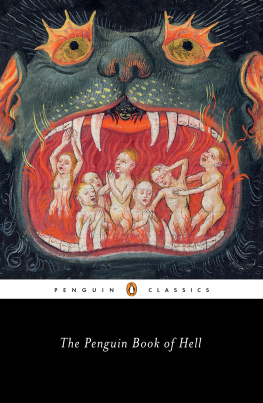
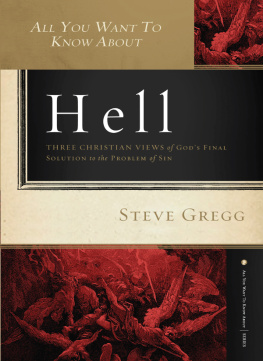
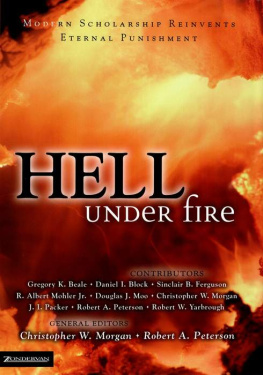
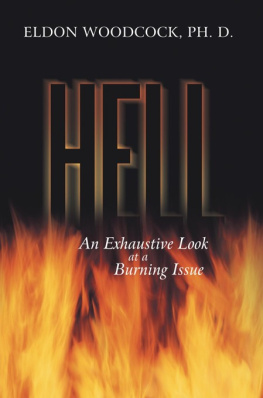
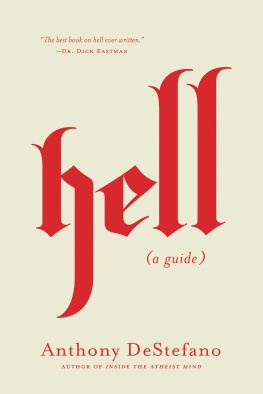
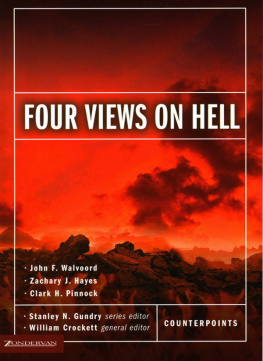


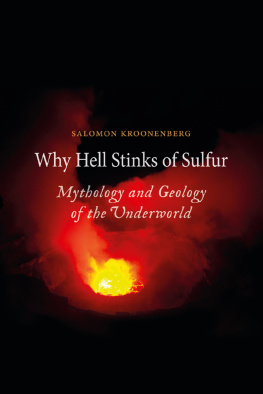
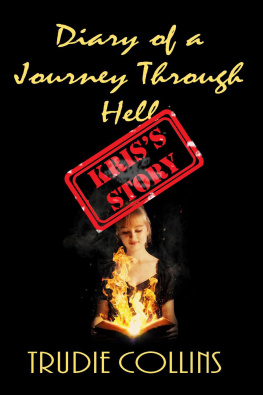
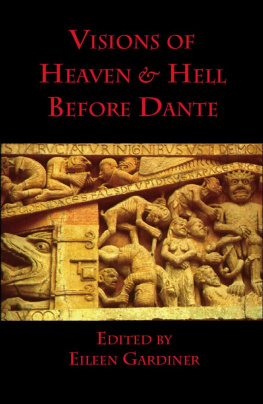
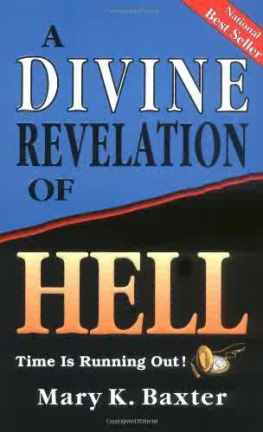

 CLASSICS
CLASSICS